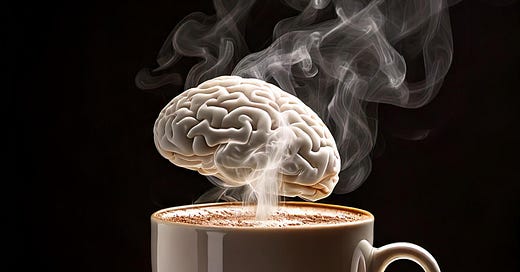Physiology Friday #241: How Caffeine Dose and Timing Affect Our Sleep Physiology
That afternoon coffee is subtly changing your brain overnight—even if you can’t detect it.
Greetings!
Welcome to the Physiology Friday newsletter.
Details about the sponsors of this newsletter including FSTFUEL electrolytes, Examine.com, and my book “VO2 Max Essentials” can be found at the end of the post!
Keep reading with a 7-day free trial
Subscribe to Physiologically Speaking to keep reading this post and get 7 days of free access to the full post archives.




